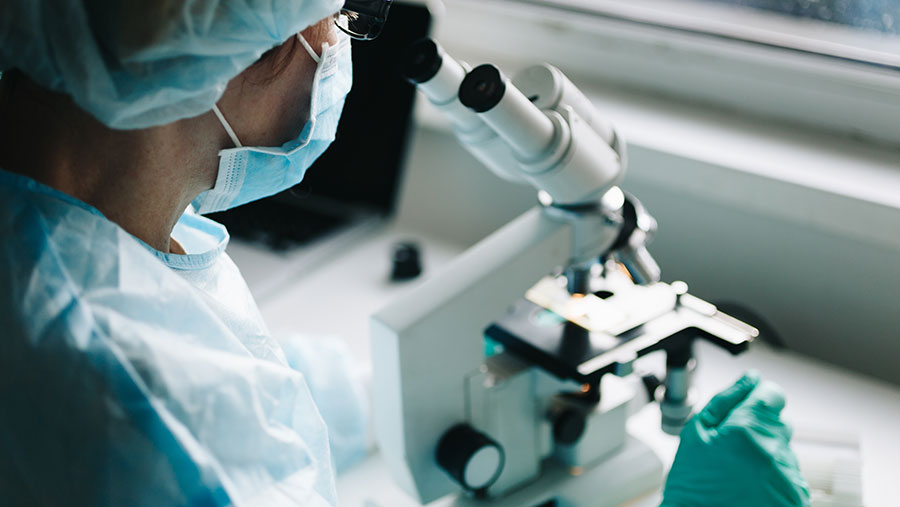Weybridge animal disease centre not fit for purpose – MPs
 © Kkolosov/Adobe Stock
© Kkolosov/Adobe Stock The UK’s main centre for managing animal disease threats is unprepared for severe or multiple outbreaks due to “inadequate management and underinvestment”, a damning report by the Public Accounts Committee (PAC) has concluded.
The committee, which scrutinises government spending and performance, said Defra had allowed facilities at the crucial site in Weybridge, Surrey, to “deteriorate to a completely unacceptable degree”.
See also: Lack of investment damaging Weybridge animal disease centre
This means the site is vulnerable to a “major breakdown” such as a power failure, which would “severely affect” the Animal and Plant Health Agency’s (Apha) ability to respond to disease outbreaks by providing important surveillance testing.
A lack of laboratories at the site means Apha would need to pause important research work to deal with any outbreak and would struggle to cope with multiple disease outbreaks or more severe threats such as African swine fever.
Avian influenza has spread rapidly across the UK, with more than 100 cases in all four regions since 1 October 2022, while the National Pig Association (NPA) has repeatedly warned against the threat of African swine fever.
Despite this, the 15 MPs who make up the PAC say they are “greatly concerned that the UK government is not sufficiently prioritising the threat from animal diseases”.
The report, published on Wednesday 16 November, sets out a number of recommendations for Defra, including:
- Update the National Risk Register to adequately reflect the significant threat from animal diseases – moving the threat higher than category C, which is the middle ranking on a five-point scale A to E
- Urgently test contingency plans for a “major breakdown” such as a power failure, to assess how Weybridge would cope if there was a significant disease outbreak at the same time
- Clear up uncertainty with the Treasury about the available funding to repair and upgrade facilities at Weybridge.
Funding deficit
Defra is working on a programme to upgrade the facility, including a new science laboratory hub and better infrastructure, but there is a funding deficit that has led to uncertainty about the huge renovation project.
The department says the upgrades will cost an estimated £2.8bn and the Treasury has so far approved funding of £1.2bn, plus £200m for critical maintenance.
The PAC report said Defra had found it challenging to quantify and value the benefits of the programme and “significant uncertainty” remained over the estimated cost.
There is also concern about how Defra will recruit the specialist staff needed to oversee the programme while the government plans staff cuts across its departments.
Furthermore, the report said Defra needed to explain how it would organise the large number of construction contracts needed for the project, amid concerns over a lack of bids for the work.
Industry reaction
British Poultry Council chief executive Richard Griffiths said avian influenza is the sector’s greatest threat and the scale of the current outbreak was unprecedented.
“To support producers feeding the nation and to manage disease challenges effectively, contingency plans and resources must be reviewed to ensure structures are robust and fit for purpose, with business continuity at their core,” Mr Griffiths said.
“We look forward to continuing our work with Defra and Apha colleagues, who are working tirelessly on avian influenza, to see where we can support each other in putting our businesses, and therefore UK food supply, first.”
Rebecca Veale, NPA chief policy adviser, said the PAC’s report was “extremely concerning, although not surprising”.
Ms Veale added: “The report makes a number of recommendations, but there is little recognition of the risk, responsibility and potential impact and cost this lack of investment places on industry should we contract ASF, particularly given the extremely challenging few years the pig sector has experienced.”
NFU chief animal health and welfare adviser Cat McLaughlin said: “The UK farming sector is already struggling to cope with some of the most challenging economic and market situations in recent times.
“Any delay in surveillance could extend disease impacts and disruption on farm, with all the inherent consequences of food supply and trade disruption, emotional and financial cost to livestock keepers and consequential reduction in innovation and research.”
Defra response
In response to the PAC report, Defra insisted the government was committed to the strongest possible standards of protection against animal diseases and was taking steps to invest in it, and that good progress was being made to secure the long-term future of the Weybridge facility.
“We are proud of Weybridge’s long-standing reputation for excellence in the field of biosecurity and the work it does to protect the UK from animal diseases,” said a spokesperson.
“Significant funding and work is already under way to upgrade its laboratories and ensure we are protected from these diseases into the future.”
